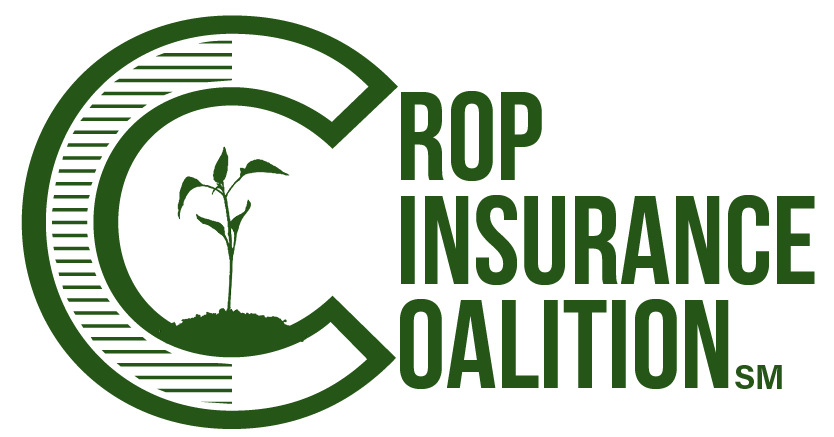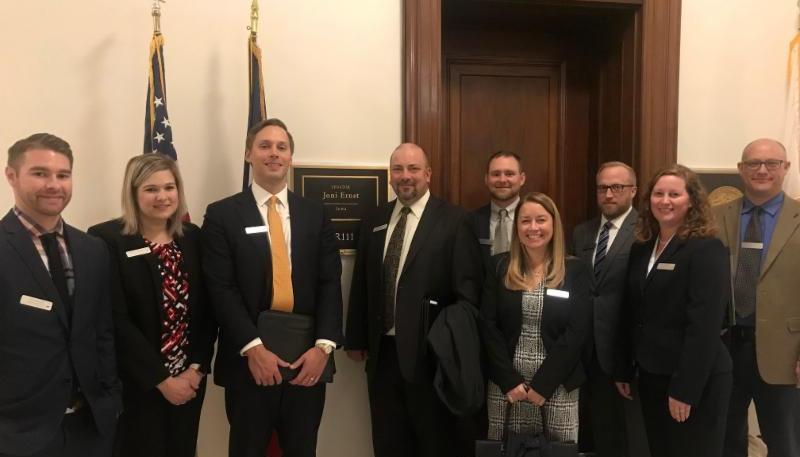Washington, D.C.- Today, the Crop Insurance and Reinsurance Bureau (CIRB) named 13 industry professionals to its 2019-2020 Emerging Leaders Program (ELP) class. In its 5th year, this will be the largest class to date, with participants selected from CIRB’s membership. The program gives the opportunity for selected professionals to increase their knowledge of advocacy and communications while providing networking experiences with industry leaders.
“The development and growth of the ELP program is just one of the many ways CIRB is a leader for the industry in shaping crop insurance advocacy,” said Zane Vaughn, CIRB Chairman. “I encourage all industry professionals to take advantage of this unique experience which provides a well-rounded curriculum.”
The program, which officially kicks off in September, allows participants to experience multiple Executive Committee meetings, learn how to effectively advocate for the industry with “lobby 101” seminars in Washington and receive media training and social media guidance. New to the curriculum this year is a reinsurance webinar for participants to learn more about the history and functions within the reinsurance industry.
The 2019-2020 CIRB Emerging Leaders Program class includes:
- Neely Phelps, American Farm Bureau Insurance Services, Inc
- Jay Mark, ARMtech Insurance Services
- Craig Conroy, COUNTRY Financial
- Matthew Miller, COUNTRY Financial
- David Stewart, Crop Risk Services
- Cade Stockberger, Crop Risk Services
- Zach Allsup, Farmers Mutual Hail Insurance Company of Iowa
- Chad Simon, Farmers Mutual Hail Insurance Company of Iowa
- Duane Hynes, Holborn
- Jaya Hahn, Hudson Crop Insurance, Inc
- Alexis Schroeder, Hudson Crop Insurance, Inc
- Mat Brueggeman, Rural Community Insurance Services
- Robert Rankin, Rural Community Insurance Services
You can learn more about the program and the new class at: cropinsurance.org/emerging-leaders-program/


 Crop insurance has always been a part of RJ Brinkmeyer’s life. A 2nd generation crop insurance professional, RJ and his brother once co-owned a crop insurance agency which was started by their father in 1966.
Crop insurance has always been a part of RJ Brinkmeyer’s life. A 2nd generation crop insurance professional, RJ and his brother once co-owned a crop insurance agency which was started by their father in 1966. Ryan Kramer began his crop insurance career early in life, as he worked as a part-time underwriter in high school and college. From there, Kramer moved up the ladder, serving as a Senior Underwriter, Underwriting Supervisor and Compliance Manager before landing in his role as Assistant Vice President-Compliance Manager at Farmers Mutual Hail.
Ryan Kramer began his crop insurance career early in life, as he worked as a part-time underwriter in high school and college. From there, Kramer moved up the ladder, serving as a Senior Underwriter, Underwriting Supervisor and Compliance Manager before landing in his role as Assistant Vice President-Compliance Manager at Farmers Mutual Hail. Chelsea Abrahamson started her career in crop insurance in 2012 as an underwriter. She joined Farm Bureau Financial Services in 2017 and serves as a Crop Marketing Specialist. In her current role, Abrahamson educates agents and business units on the importance of crop insurance and assists with agent training and partnerships.
Chelsea Abrahamson started her career in crop insurance in 2012 as an underwriter. She joined Farm Bureau Financial Services in 2017 and serves as a Crop Marketing Specialist. In her current role, Abrahamson educates agents and business units on the importance of crop insurance and assists with agent training and partnerships.
 Kevin Boeckenstedt serves the Crop Risk Services (CRS) team through his role at the intersection of technology, innovation, and claims. Boeckenstedt began working with CRS in 2010 as a System Support Technician, overseeing several aspects of information technology within the organization. Throughout the years, his responsibility has expanded to serve as a database administrator, and now as Special Projects Manager for the company.
Kevin Boeckenstedt serves the Crop Risk Services (CRS) team through his role at the intersection of technology, innovation, and claims. Boeckenstedt began working with CRS in 2010 as a System Support Technician, overseeing several aspects of information technology within the organization. Throughout the years, his responsibility has expanded to serve as a database administrator, and now as Special Projects Manager for the company.










